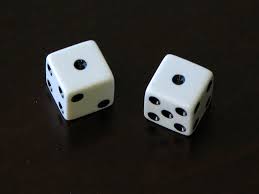“Twenty-seven lawyers in the room, anybody know ‘post hoc ergo propter hoc?’” asks Martin Sheen as President Josh Bartlett in the second episode of The West Wing.
“After it therefore because of it,” his chief of staff responds.
“It means one thing follows the other therefore it was caused by the other,” the president confirms. “But it’s not always true. In fact, it’s hardly ever true.”
Aaron Sorkin’s fictional president is pointing out that his campaign didn’t lose Texas as a result of Bartlett telling a bad joke. Bartlett’s party lost Texas after Bartlett made a bad joke, but not because Bartlett made a bad joke.
If only students, their parents, counselors, and admissions personnel could accept this crucial understanding. Susie was admitted to a highly selective university after she volunteered for 200 hours at the soup kitchen therefore Susie was admitted to a HSC because Susie volunteered for 200 hours at the soup kitchen. It ain’t necessarily so. Indeed, a glance at Susie’s transcript would point out that when she wasn’t ladling minestrone, she was being graduated first in her class, achieving perfect scores on her SATs, and being elected president of her senior class. Susie has some other attributes. Just like there were some other factors contributing to Bartlett’s loss in Texas.
And what about the dozen or so Susies—depending on just how highly selective the HSC is—who were also first in their class with 99th percentile scores, and gavels in their hands? Again, well-meaning explanations abound: Susie had five AP classes instead of six; her recommendations were from her language teacher rather than from her math teacher; she didn’t show enough “demonstrated interest;” she is (or isn’t) an underrepresented minority; her middle name has an odd number of letters; her maternal grandmother was left handed.
All of which may be true. But none of which are determinative. When HSCs choose from among a dozen valedictorian applicants, some number of them are admitted. And the rest are not. Focusing on the “why” leads to a meaningless trip to the intersection of Sad Avenue and Recrimination Boulevard.
The good news, as always, is that there is something to be said for taking all those advances classes and learning a lot. The even better news is that the Susies who are graduated at the top of their class have tremendous options—even if they get an unlucky roll of the dice at their first choice HSC. There are hundreds of extraordinary institutions happy to admit—and fund!—those strong students.
The take away for all those bright, motivated, dedicated Susies should be clear: five advanced placement courses is as good as six; commit to the extra-curricular activities that are meaningful and important, not just the ones that you think will “look good;” and for goodness gracious sakes enjoy your high school years. You’re going to be fine.
Especially if you understand post hoc ergo propter hoc.






2 thoughts on “Post Hoc”
The moment I fell in love with The West Wing. Great blog.
“Twenty-seven lawyers in the room, anybody know ‘post hoc ergo prompter hoc?’”
David: The lesson learned from your article is a point well-taken. And it’s a fallacy that is engaged in by college applicants (and their parents), as well as by physicians (and patients) seeking an elusive cause for idiopathic diseases, by lawyers seeking to explain an adverse decision by a jury, and by financial pundits trying to explain daily gyrations in the stock market.
But…the “Post Hoc” fallacy that you write about was mis-spelled by you. There is no “m” in the word “propter.” It’s written Post hoc, ergo PROPTER hoc, NOT PROMPTER hoc. But you already knew that, right?